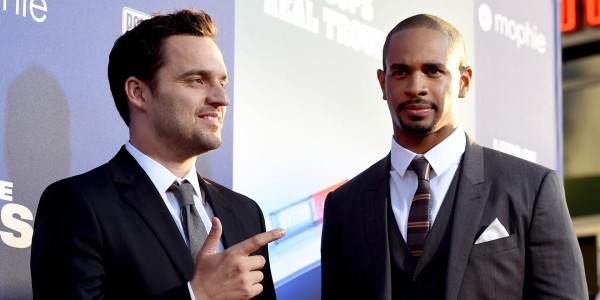After performing makeovers on virtually every willing man, woman and house in America and beholding the result — attractive ratings — television had only one logical course of action. It had to improve the world.
Thus was born an international flood of programs aimed at taking an average-looking planet and giving it the kind of overhaul once reserved for Hollywood starlets eager to maximize their assets.
“Extreme Makeover: Home Edition” has aired from Scandinavia to Africa to Latin America; a poignant Iraqi version, “Labor and Materials,” restores war-damaged homes. The original “Extreme Makeover,” which started it all in 2002 on ABC, also is worldwide and jockeying for attention with other surgery shows.
The corporal makeover trend has allowed American standards of beauty, often as determined within Beverly Hills city limits, to established new beachheads abroad. Don’t just dream of looking like your favorite actor; copy their perfection with plastic surgery!
But adopting American looks doesn’t translate to gaining an American psyche. Doctors who have worked on shows both foreign and domestic say there are distinct differences in how patients think about self-improvement and what it means.
There’s also a gulf between doctors here and abroad when it comes to TV fame and how, or whether, they can capitalize on it.
No need for perfection
A British show, “Brand New You,” offers a window of insight into cultural variations among patients. Airing on Channel 5 in the United Kingdom and on BBC America, the series tracks British women who gained a U.S. beauty rehab with plastic surgeons, a dentist and stylists.
“Americans want perfection. The British just want to look better. They look better, they’re happy,” said Dr. Paul S. Nassif of Beverly Hills, a specialist in facial plastic surgery who worked on “Brand New You” and a number of U.S. shows.
With plastic surgery long entrenched here both on screen and off, Americans are familiar with their options and know what questions to ask and how to paint a detailed picture of their desired outcome, Nassif said.
According to data compiled by the American Society of Plastic Surgeons, there’s been a 700 percent increase in cosmetic plastic surgery procedures from 1992 to 2004. There were more than 9 million U.S. procedures last year, compared to an estimated 75,000 in the United Kingdom. (Note, of course, the U.S. population totals 297 million vs. the U.K.’s 60 million.)
“British patients don’t ask a lot of questions. They’ll book surgery without even seeing you. They’re low-maintenance, might be a way to say it,” said Nassif.
Patricia Pitts, a clinical psychologist who evaluated potential patients for “Brand New You” and TLC’s nonsurgical series “10 Years Younger,” noted sharp differences between Americans and British applicants.
Slideshow 26 photos
Celebrity Sightings
“When I sat down with those from the U.K., their strong concern was would they be judged by family, friends and culture for doing cosmetic surgery. They thought it would be misunderstood,” she said. Their typical goal: to look as young as they felt.
Americans wanted the same thing but had higher expectations. They focused on how their appearance could affect their chances for success in work and love.
“They’re big on first impressions. If you look younger, you have a better chance of getting ahead in life,” Pitts said. They also were demanding of themselves, stressing the effort they put into exercising and eating right.
“When I asked ‘Brand New You’ contestants what they do for exercise, practically all of them answered, ‘Walk the dog,”’ she said.
Plastic surgery growing in EuropeMakeover patients typically appear to be ecstatic over their transformations. The doctors who perform them often have reason to smile as well, as shows swell demand for services in general and the TV Pygmalions in particular.
Nassif, who already had European patients familiar with his work revising unsuccessful operations by other doctors, has seen his overseas customer base increase in recent years because of exposure from “Brand New You” and a much-aired BBC segment he did.
Before, about 1 percent to 2 percent of his business was from Europe; now it’s as high as 15 percent, he said. Besides the results, he said, patients appreciate both the privacy they have away from home and the exchange rate of the soft U.S. dollar.
Dr. William M. Dorfman, the first dentist on “Extreme Makeover” and part of “Brand New You,” is another beneficiary. The perfect American-style smiles flashed in the shows have turned out to be a bounty for Discus Dental, a tooth-whitening products company which Dorfman founded and partly owns.
Demand for one particular in-office whitening treatment has “skyrocketed. We can’t even supply the product fast enough,” he said.
For one Dutch dentist, however, participation in a makeover show left only a sour taste.
Dr. Harry-Paul Stassen took part in the “Make Me Beautiful” series filmed at a dental practice in Oosterhout, Netherlands. The program disrupted the office schedule and cost the practice money, since it was paying for half of each TV patient’s procedure.
But didn’t it draw interest from potential new business?
“We got a lot of calls from people who thought we were a combination of God and Santa Claus,” Stassen said. “They wanted us to do the impossible and do it for free.”
